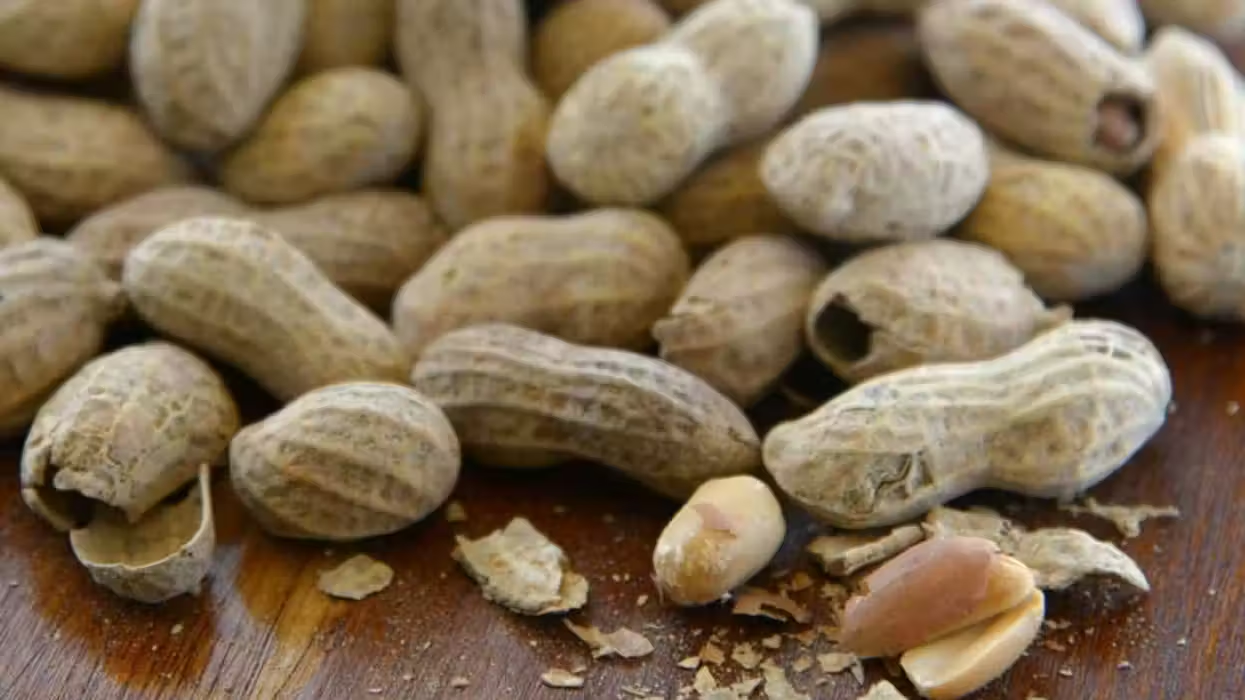
Photo by Amy Brothers/ The Denver Post

It turns out that more peanut exposure earlier on means fewer allergy cases later.
Health experts suggested in years past that mothers with familial predispositions to developing allergies should avoid peanut consumption during pregnancy and breastfeeding and that parents should avoid giving their children peanut products and other common allergens before the age of 3.
According to a National Institutes of Health-backed study published on Monday in the American Academy of Pediatrics' medical journal, Pediatrics, the strategy of avoidance appears to have been the wrong approach.
After observing the prevalence of peanut allergy among children in Western countries double over the course of a decade, an international team of researchers evaluated studies of peanut consumption and avoidance to figure out which was the better approach.
'There are less kids with food allergy today than there would have been if we hadn’t implemented this public health effort.'
The researchers, whose work was partly funded by the National Institute of Allergy and Infectious Diseases, conducted a randomized trial of peanut consumption in infants at risk for peanut allergy and found that "early introduction of peanuts significantly decreased the frequency of the development of peanut allergy among children at high risk for this allergy and modulated immune responses to peanuts."
Following the 2015 publication of the trial results in the New England Journal of Medicine, numerous health organizations issued consensus-based interim guidance recommending early allergen introduction.
Years later, the NIAID, leaning on the trial data in the 2015 study, released guidelines recommending early introduction for all infants facing low risk of developing a peanut allergy and for high-risk infants where appropriate.
RELATED: The hidden hospital scam driving up drug prices, coming to a state near you

The new study in Pediatrics indicates that the exposure strategy was worthwhile and has resulted in a 27.2% reduction in the cumulative incidence of peanut allergy among children in the post-guidelines cohort versus the pre-guidelines cohort, and a reduction of over 40% when comparing the pre-guidelines cohort with the cohort situated after the 2017 release of the updated NIAID guidelines.
After analyzing health records from nearly 50 pediatric practices altogether tracking over 120,000 kids, the researchers behind the new study found that overall food allergy rates in kids under 3 dropped from 1.46% between 2012 and 2015 to 0.93% between 2017 and 2020.
The researchers noted further that a Canadian study found that the implementation of early peanut introduction guidelines "was associated with a significant decrease in new-onset anaphylaxis in children aged 2 years or younger."
"I can actually come to you today and say there are less kids with food allergy today than there would have been if we hadn’t implemented this public health effort," Dr. David Hill, an allergist at the Children's Hospital of Philadelphia and author of the study, told the Associated Press.
While about 60,000 kids have reportedly dodged food allergies since 2015, including 40,000 children who would have otherwise developed peanut allergies, 8% of children remain affected by food allergies. One reason the number remains high may be that only a minority of pediatricians — roughly 29% — indicated they followed the expanded guidance released in 2017.
Like Blaze News? Bypass the censors, sign up for our newsletters, and get stories like this direct to your inbox. Sign up here!